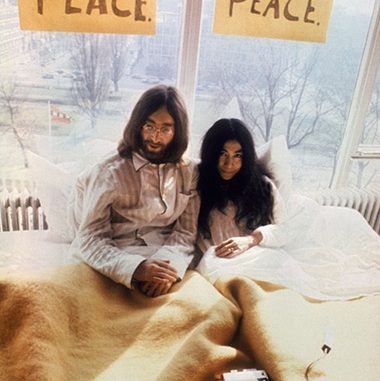
Nik Cohn thought John Lennon ‘self-pitying’, Led Zeppelin ‘embarrassing’ and rated Del Shannon’s ‘Runaway’ above Van Morrison’s entire career. Bob Stanley revisits his 1969 book

n the spring of 1968, the former Queen magazine pop columnist Nik Cohn rented a cottage in Connemara on the west coast of Ireland. All of 22, he had fallen out of love with pop music, and he hid himself away for two months to write a cross between a memoir and a farewell letter. For Cohn, it felt like the end of an era of pop that was “intelligent and simple both”, that carried its implications lightly, that was “fast, funny, sexy, obsessive, a bit epic”. He sniffed pretension in the air as pop turned to rock, and he wanted to get it all down on paper before he completely lost interest. The confidently titled Pop from the Beginning moved from Bill Haley’s Rock Around the Clock in 1955 to the ebbing tide of psychedelia and the return to roots (Dylan’s John Wesley Harding, the Beatles’ “Lady Madonna”) of early 1968. Published in 1969, just as the Beatles disintegrated, Pop from the Beginning was the first definitive text on pop music. Cohn wrote in fast, short sentences; the book read like a series of 7in singles, with no room for deviation, no long solos, no flab at all.
By the time it was reprinted as a paperback a year later, it had a new title –Awopbopaloobop Alopbamboom – and a telltale subtitle: “the Golden Age of Rock”. Cohn had predicted the sea change; he had fallen out of love with pop just as the Beatles-led consensus years came to end: pop was split, hard left and right, between Radio 1 factory‑farmed pop (“Sugar, Sugar”) and self-conscious, album-based heavy rock (Led Zeppelin, Jethro Tull, Black Sabbath). For Cohn, a teddy boy at heart, neither came close to the glamour and speed fix of the rapidly receding “golden age” he wrote about with such dash: Elvis’s “great ducktail plume and lopsided grin”, Phil Spector’s “beautiful noise”, and James Brown, “the outlaw, the Stagger Lee of his time”.
Among the the reasons Cohn’s book has remained such a thrilling, inspirational read are its total confidence and absolute sense of finality. By 1969, Cohn considered John Lennon “self-pitying”, thought the Who were “going through the same old stunts”, and dismissed Pink Floyd as “very solemn, most artistic, boring almost beyond belief”. The new order spurned flash, and dressed down in T-shirts and denims; Cohn, disgusted, reacted in 1971 with a book on fashion called Today There Are No Gentlemen. He has never shown any inclination to write an updated edition of Awopbopaloobop

Nik Cohn grew up in postwar Londonderry. His father was a renowned historian, Norman Cohn, which may have put young Nik off anything approaching rigour in his writing. At 13, he spent a week in London, where he found a paperback of Alan Lomax’s Mister Jelly Roll: The Fortunes of Jelly Roll Morton, New Orleans Creole and Inventor of Jazz; the cover promised to explain how “he put the heat into hot music”. Jazz historians have dismissed large chunks of Morton’s life story as wishful thinking, while confirming that he was also a hugely significant talent and influence, but aged 13, Nik Cohn didn’t care for dry history, wasn’t remotely bothered that Morton had vamped up his past. He was absorbed by tales of pimps and voodoo queens, and pictured Mister Jelly Roll as the dust jacket described him, “wearing a hundred-dollar suit as sharp as a tipster’s sheet … the diamond in a front tooth gleaming like gaslight”. The book contained a map of New Orleans – Cohn memorised every street. As a Jewish kid growing up in sectarian Ulster, he felt like an outsider and sought escape in invention; Mister Jelly Roll fed right into a mythology of flash, violence and seven-day weekends that he had first discovered through Elvis Presley’s records, and became the biggest literary influence on Cohn’s career.
Awopbopaloobop transferred the underworld grit, diamond-studded teeth and overflowing dresses in Cohn’s imagination to the glamour, the ostentation, the ruthlessness and grubbiness of the pop business. He would soon base the 1970 novel Arfur: Teenage Pinball Queen in his fictionalised New Orleans, now renamed Moriarty (“the foremost city of the nation, a compound of refinement and squalor, grace and depravity”), where there were now beautifully named quarters of Cohn’s own making – Jitney, Cicero and Savoy, “the wealthy St Jude and the shanty Canrush”.
Read more at the Guardian
Find an incredible range of rare vinyl, CDs, music memorabilia, merchandise and more at eil.com




Be the first to comment